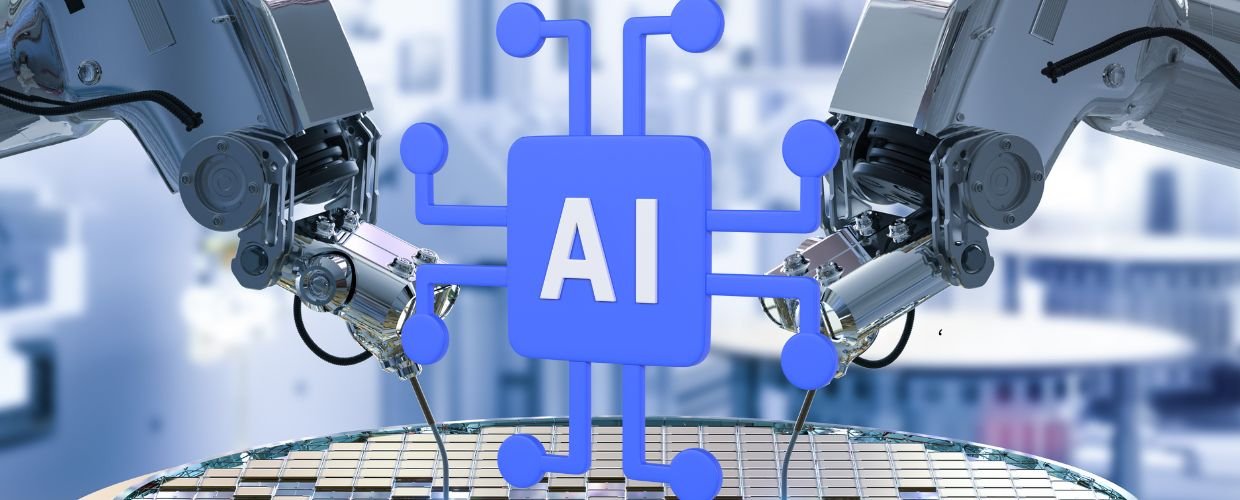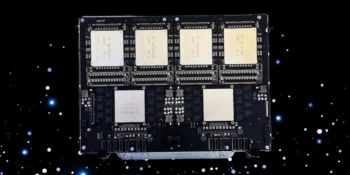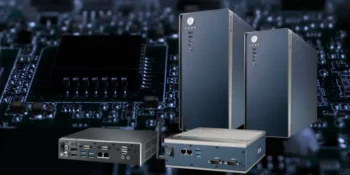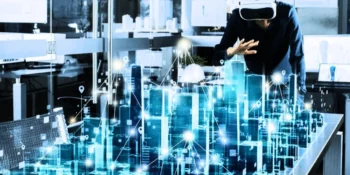In modern industry, a technological revolution is underway—one where the fusion of artificial intelligence (AI) and manufacturing is reshaping the way goods are produced. This dynamic synergy promises to enhance efficiency, drive innovation, and propel the manufacturing sector into a new era of productivity. In this article, we delve into the significance of AI in manufacturing, its transformative impact, and the strategies required to navigate this evolving landscape.
The Significance of AI in Manufacturing: A Paradigm Shift in Production
AI’s entry into the manufacturing sector is nothing short of a game-changer. As factories adopt intelligent automation, traditional assembly lines evolve into interconnected, data-driven ecosystems. AI’s ability to process vast amounts of data in real time, coupled with its capacity for autonomous decision-making, has the potential to revolutionize production processes and supply chains.
The significance lies not only in enhanced efficiency but also in the creation of new possibilities. AI empowers manufacturers to optimize operations, predict maintenance needs, and achieve higher levels of customization. It is crucial in an era where customer demands rapidly evolve, requiring factories to be agile and adaptive.
AI in Manufacturing’s Influence: A New Era of Efficiency and Innovation
The impact of AI in manufacturing is felt across various dimensions, from production lines to quality control to inventory management.
Predictive Maintenance
AI-driven sensors can monitor machinery in real time, detecting anomalies and predicting maintenance needs before breakdowns occur. It minimizes downtime, extends equipment lifespan, and optimizes maintenance schedules.
Quality Control
AI-powered vision systems can perform complex inspections, identifying defects and variations that might escape human eyes. It results in higher-quality products, reduced waste, and improved customer satisfaction.
Demand Forecasting
AI algorithms analyze historical data and market trends to predict demand fluctuations. It enables manufacturers to optimize production levels, reducing excess inventory and minimizing stockouts.
Challenges and Considerations: Balancing Automation and Human Expertise
While AI in manufacturing offers immense potential, it also presents challenges that must be navigated. One critical concern is the balance between automation and human expertise. As factories become more automated, the role of human workers may evolve. Manufacturers must consider how to integrate AI systems best while valuing the insights and skills that human workers bring to the table.
Furthermore, ensuring the security and privacy of data becomes paramount in an interconnected manufacturing environment. As AI systems communicate with each other and external networks, vulnerabilities can arise. Protecting sensitive information and maintaining the integrity of production processes are essential considerations.
Maximizing Impact: Navigating the Future of AI in Manufacturing
As AI in manufacturing continues to redefine industry standards, several strategies can ensure its potential is maximized while challenges are addressed.
Collaboration Across Disciplines
Effective integration of AI in manufacturing requires collaboration between engineers, data scientists, and domain experts. Cross-disciplinary teams can identify opportunities for AI applications and develop solutions that align with manufacturing goals.
Upskilling the Workforce
As automation increases, the skill sets required of manufacturing workers may evolve. Companies should invest in upskilling programs that empower employees to work alongside AI systems, enhancing their roles and maintaining a human touch in manufacturing.
Ethical AI and Transparency
Manufacturers must prioritize the ethical use of AI systems. Algorithms should be designed and trained to avoid bias and discrimination. Transparent communication about using AI in decision-making processes fosters trust among stakeholders.
Conclusion
As AI becomes an integral part of the manufacturing landscape, the prospects for industry transformation are immense. The amalgamation of data-driven decision-making and intelligent automation promises to enhance efficiency, minimize waste, and drive innovation. The interconnected factories of the future are poised to deliver higher-quality products, respond nimbly to changing market demands, and create new growth opportunities.
The influence of AI in manufacturing transcends the factory floor. It impacts supply chains, customer experiences, and the overall competitiveness of businesses. However, as we embrace this paradigm shift, navigating the challenges with a balanced approach is essential, ensuring that automation complements human expertise rather than replacing it.
In the tapestry of technological advancement, AI in manufacturing represents a thread that weaves together efficiency, innovation, and sustainable growth. By fostering interdisciplinary collaboration, prioritizing ethical considerations, and valuing the role of the workforce, manufacturers can harness the full potential of AI, propelling the industry into a future where intelligent automation is not just a tool but a transformative force.












